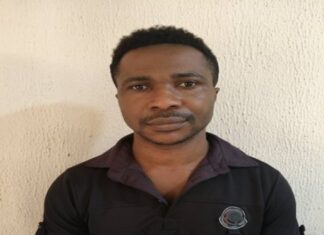- Why former leaders are corrupt, by Gowon
President Muhammadu Buhari has stated that the $320 million stolen by the late Head of State, Gen. Sani Abacha, would be spent on the Conditional Cash Transfer scheme of the administration to support the poor and vulnerable Nigerians.The president said it was one condition given by the Switzerland authorities for the repatriation of the funds.
This was as the president identified anonymous ownership of companies as one of the veritable platforms for money laundering and other global crimes against humanity. Buhari spoke yesterday while declaring open the eighth Commonwealth Regional Conference for Heads of Anti-Corruption Agencies in Africa.
The five-day meeting is being hosted by Nigeria’s Economic and Financial Crimes Commission (EFCC). Buhari, who was represented by the Vice President, Prof. Yemi Osinbajo, said that the Global Forum on Asset Recovery (GFAR), after its inaugural meeting in Washington, DC, in December 2017, had facilitated efforts toward asset recovery and return.
“The GFAR saw the signing of a Memorandum of Understanding between Nigeria and the Government of Switzerland for the return of an additional $320 million of the Sani Abacha loot. “Included in that agreement is the commitment that the funds would be invested in one of Nigeria’s flagship social investment programmes, the Conditional Cash Transfer scheme targeted at the poorest and most vulnerable households in our country.”
Buhari, however, advocated the repatriation of stolen public funds stashed abroad, without ‘pre-conditions’ attached by beneficiary countries. “Permit me to mention an issue crucial to asset recovery and repatriation.
This is the use of anonymous companies; masked corporate ownership of companies. And, this is deeply implicated in the corruption story,” Buhari said. The president added: “Yes, we know that anonymous companies are not always illegal, or they are not always dedicated to harm.
But, we also know that secrecy provides a convenient cover for the criminal and the corrupt. “And not just operating here on the theoretical or hypothetical standpoint. Our experience has shown that anonymous corporate ownership serves as a vehicle for masking conflict of interest, corruption, tax evasion, money laundering and even terrorism financing.
“This is a global challenge and nothing less than a changed global approach will be needed to tackle it. Opaqueness in one section of the globe undermines openness in another.
“We need to break down these walls together. Continued partnership and collaboration cannot be over-emphasised. African countries must come together to keep the issue of asset recovery and return on the front burner.” Consequently, Buhari called on African countries to “insist that recovered stolen assets will be returned to countries of origin without any pre-conditions.”
He expressed worry that the very essence of democracy and the rule of law was being threatened by the scourge of corruption, which, he maintained, deserved urgent global attention. His words: “Corruption continues to be one of the greatest challenges of our time; a problem that threatens the very existence and continued survival of our “It has been widely described as a crime against humanity, because of the implication on the lives and livelihoods of all, especially the poorest. It undermines democracy and the rule of law. It allows organised crime and terrorism to flourish.
It triggers needless wars and bloodshed. Indeed, much has been lost and is still being lost.” According to the president, a 2014 report by The One Campaign had claimed that “developing countries lose $1 trillion annually.”
He argued that “the cost of corruption, therefore, imposes on all African countries and governments a moral obligation to fight it with vigour and political will by strengthening all institutions and systems involved in law enforcement towards promoting a culture of transparency and accountability while public sector corruption is the usual focus, the private sector’s complicity is significant, especially with large multinational corporations engaging in tax evasion.
”Meanwhile, the Commonwealth has estimated that African countries suffer loss of $148 billion annually through corrupt practices. Secretary-General of the Commonwealth, Baroness Patricia Scotland, who disclosed this during the opening session, said: “It is estimated that corruption costs the African continent over $148 billion per annum.”
On his part, ex-Head of State, Gen. Abdulsalami Abubakar, encouraged the Commonwealth Regional heads of anti-corruption agencies to forge responsible partnership against the hydra-headed monster. Also speaking at the conference, the Chief Justice of Nigeria (CJN), Justice Walter Onnoghen, pledged the full cooperation of the judiciary to tame the menace of corruption. According to the CJN, corruption is a cankerworm, which must be tackled head-on. Among other dignitaries at the event was former South African President, Mr. Thabo Mbeki.
.new telegraph













